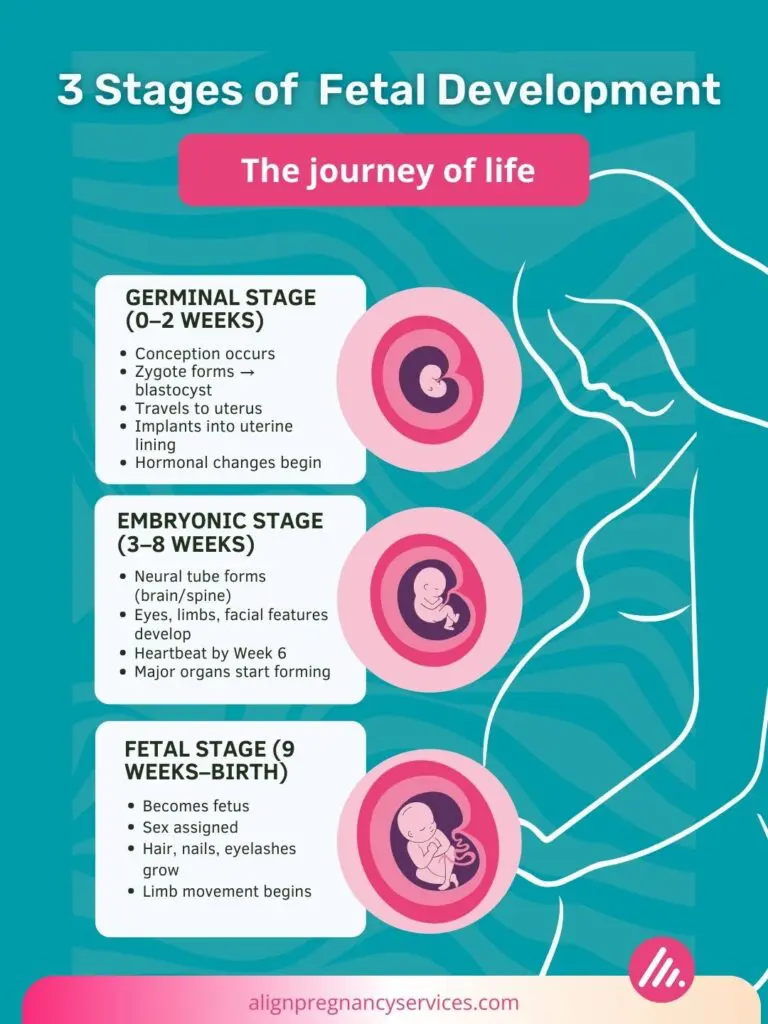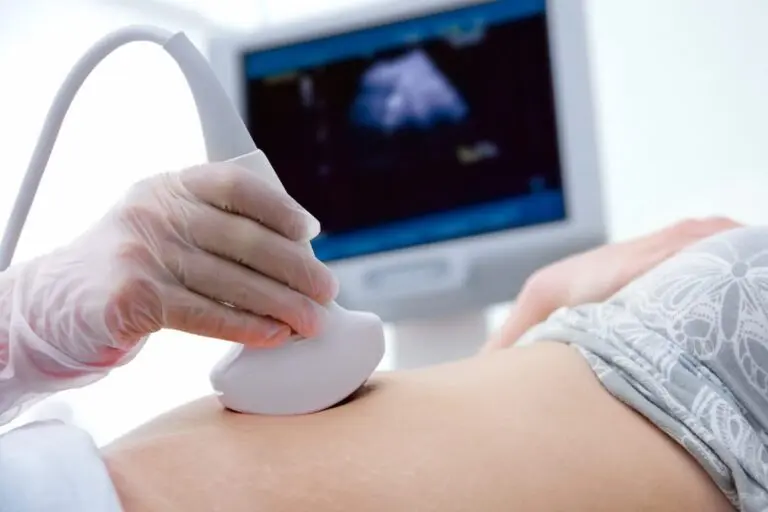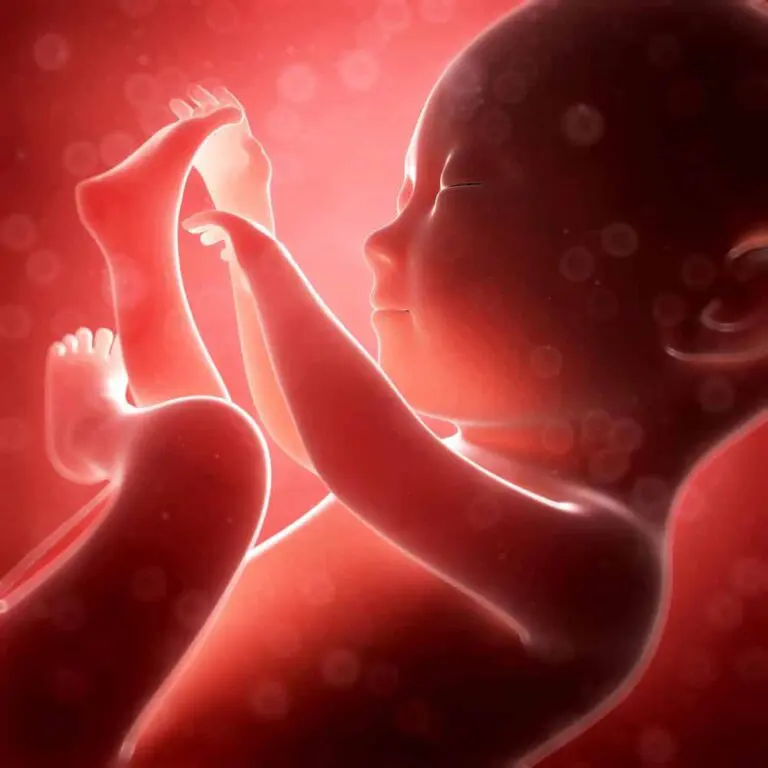Pregnancy is such a special time, and when you look past the morning sickness, your ever-changing body, and the aches and pains- you can embrace the joy and the miracle growing inside of your womb. There are so many changes that happen weekly, and even daily.
After all, it only takes 37-40 for a baby to grow from a tiny embryo to an infant! If you’ve seen your ultrasound photos and ever wondered about what really is going on in there. This article breaks down fetal development into three key stages and highlights five fascinating facts every expecting parent should know.

What Happens During Fetal Development?
During fetal development, a fertilized egg transforms into a fully formed baby over 37 to 40 weeks, progressing through three stages: the germinal stage (conception to 2 weeks), where the zygote forms and implants in the uterus; the embryonic stage (weeks 3–8), where major organs and structures begin forming; and the fetal stage (week 9 to birth), marked by rapid growth, movement, and the development of features like hair, nails, and hearing.
Understanding the stages of fetal development is like watching the miracle of life unfold one week at a time. From a single cell to a fully formed baby, the prenatal journey is both intricate and awe-inspiring.
Medically, fetal development is divided into three main stages: the Germinal Stage, Embryonic Stage, and Fetal Stage. But in between these clinical milestones are dozens of remarkable changes that make each week of pregnancy unique.
1. The Germinal Stage (0-2 weeks):
- Begins at conception when the sperm fertilizes the egg to form a zygote.
- The zygote travels down the fallopian tube and begins rapid cell division.
- It becomes a blastocyst and implants into the uterine lining.
- Hormone production begins, halting menstruation and confirming pregnancy.
The germinal stage begins when a sperm and an egg join together in a fallopian tube, also known as conception. As the sperm fertilizes the egg, the egg creates a zygote, which is the union of a male gamete (sperm) and a female gamete (egg). As the zygote makes its way to the uterus, it divides several times, creating one structure that will eventually become the embryo (and, eventually, the fetus) and one structure that will become the placenta.
As cell division continues, a blastocyst is formed, which is a collection of dividing cells made by a fertilized egg. The blastocyst, having made it to the uterus, implants into the uterine lining. If the implant is successful, the body will start producing hormones to support the pregnancy (this will stop one’s menstrual period from occurring).
2. The Embryonic Stage (3-8 weeks):
- The blastocyst is now called an embryo.
- Major organs and structures begin to form, including the brain, heart, and spinal cord.
- Facial features, limbs, and internal systems develop rapidly.
- By week 6, the heart begins beating.
Lasting from around the third week of the pregnancy until the eighth week, this stage sees the blastocyst, now called an embryo, begin to take on human characteristics.
Organs like the neural tube (which becomes the brain and spinal cord), the head, eyes, mouth, and limbs form. At six weeks, the embryo’s heart begins to develop. By the eighth week, most of the embryo’s organs and systems begin to develop.
3. The Fetal Stage (9 weeks-birth):
- The embryo becomes a fetus.
- Fingernails, hair, and eyelashes begin to grow.
- Sex is determined by week 9.
- Fetal movement begins, and senses like hearing and sight start to develop.
The fetal stage takes place from the ninth week until birth and sees the embryo officially turning into a fetus. The fetus is assigned its sex at the ninth week, and fingernails, eyelashes, and hair also begin to grow. The fetus can move its limbs at this stage.
Although these are the standard stages of fetal development, there are exciting moments in between these stages that you should know about!
Five Fun Facts About The Stages Of Fetal Development (You Might Not Know)
1. Organ Development Begins by Week 5
At only 5 weeks gestation (before many women even know that they are pregnant), your baby’s heart, brain, and spinal cord nerve cells are beginning to develop. External features are also beginning to form during this rapid time of growth.
2. The Heart Beats 54 Million Times Before Birth
Your baby’s heart starts pumping oxygen-rich blood cells from mom very early on, and by the eight week is beating regularly about 160 times a minute. You may have already heard this precious sound through an ultrasound. On average, between fertilization and birth, your baby’s heart will beat approximately 54 million times!
3. Babies Hear Sounds Inside and Outside the Womb
Your baby can hear both inside and outside of the womb at 16 weeks! Most of the ear structures required to pick up sound are formed at this time. Your uterus is actually very noisy, and your baby is busy listening to your heartbeat, your breathing, and all of the other sounds inside your body.
Meanwhile, on the outside, your little one can listen to you talk and sing, and may actually find these sounds very comforting. Research has shown that babies actually react to mom’s voice while inside the womb! There have also been studies done to show that music can be very calming to your baby.
4. Eyes Develop by Week 20 and React to Light by Week 28
Your baby’s tiny eyes are fully developed by 20 weeks and they open around weeks 26-28. While their vision is a bit blurry, they do react to light. Try shining a flashlight on your belly, or head out into the sunshine to see what happens! You may feel some kicks or your baby shifting positions.
5. Babies Can Taste What You Eat
Your baby can actually taste what you eat! Multiple studies have shown that throughout your pregnancy, your little one will taste certain foods since taste and smell travel through the amniotic fluid.
While this does not harm your baby in any way- the interesting result is that your baby can develop certain food preferences based off of what you eat during your pregnancy! Some woman will switch up their diet during their pregnancy to introduce different tastes and smells to their baby.
See Your Baby’s Development in Real-Time
Understanding the stages of fetal development is fascinating, but nothing compares to seeing it with your own eyes. From the early flutter of a heartbeat to the forming of tiny fingers and toes, every ultrasound reveals something amazing about your baby’s journey.
If you’re pregnant and curious to watch these incredible changes as they happen, Align Pregnancy Services invites you to schedule a free ultrasound with us.
👉 Learn more about our free pregnancy ultrasounds
Discover how you can witness the beauty of prenatal development in a warm, supportive environment.
Sources:
Amazing Facts About Pregnancy I Learned As a New Father (businessinsider.com)
7 Interesting Facts You May Not Know About Pregnancy | Women’s Care of Bradenton (toplinemd.com)
How music affects your baby’s brain: Mini Parenting Master Class | UNICEF Parenting
Written by: Shannon Martin
FAQs
When does the baby’s heart start beating?
Around week 6 of pregnancy.
Can my baby hear my voice in the womb?
Yes, babies can hear by week 16 and respond to familiar sounds.
When does fetal development officially begin?
Development starts at conception, with major organ formation starting as early as week 3.
Can my baby taste what I eat during pregnancy?
Yes, flavors pass through amniotic fluid and may influence preferences.
Is it safe to play music for my baby?
Yes, gentle music can be calming and beneficial.
How long is the fetal development process?
Fetal development lasts approximately 37 to 40 weeks, beginning at conception and ending at birth.
What can be seen in a pregnancy ultrasound?
Ultrasounds can show fetal growth, heartbeat, movement, limbs, and developing organs at different stages.


